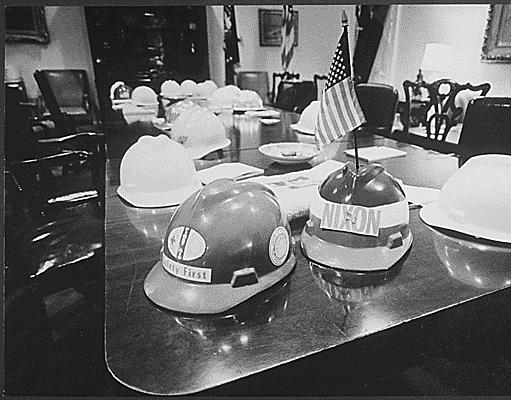Reasons for Public Support for the Vietnam War (Edexcel GCSE History): Revision Note
Exam code: 1HI0
Summary
The idea that all of the American people turned against the Vietnam War is wrong. Support for America’s involvement in the fighting remained strong to the end. Some of this was due to a fear of a communist world. Some of it was due to a love of America and its way of life. This resulted in many Americans feeling a deep reluctance to criticise their leaders and government. President Richard Nixon called those who supported the war the ‘silent majority’.
Fear of Communism & the Vietnam War
Many people in America were genuinely terrified about the spread of communism in the decades that followed the Second World War
They had experienced the ‘Red Scare’ in the early 1950s when people were told that communist spies had infiltrated the American government and armed forces
They had witnessed the USSR expand its influence into Eastern Europe where it installed communist governments in countries including East Germany, Czechoslovakia, Romania, Poland and the Baltic States
They had seen the communist triumph in the Chinese Civil War and America had already gone to war to prevent South Korea from becoming communist like its northern neighbour (North Korea)
They believed victory over the USSR in the Cold War was vital for America’s future
As a result, many Americans thought it was important that the US stopped the Vietnamese ‘domino’ from falling
Patriotism & the Vietnam War
America was and remains a very patriotic country where people take great pride in their country and its achievements
They believed that America was a champion of freedom and liberty
Criticising America and its armed forces, especially at a time of war, was seen as a betrayal
Even when confronted with evidence of wrongdoing, such as the My Lai Massacre, they took that attitude of ‘My country, right or wrong’
The ‘Hard Hat’ riot, 1970
The ‘Hard Hats’ was the name given to construction workers, who wore helmets at work, who supported the government
Many had served in the armed forces, they were very patriotic and believed in supporting the president
When students in New York started a protest against the Kent State shootings in May 1970, they were attacked by around 200 ‘Hard Hats’
Over 70 people were injured
Only four arrests were made
Some witnesses claimed the police failed to intervene

The ‘Silent Majority’ & the Vietnam War
The ‘silent majority’ was a term used by Nixon in a speech in 1969
Nixon claimed it summed up most Americans who did not participate in anti-war demonstrations and quietly supported his policies
The beliefs of these people, Nixon argued, were not covered by the media who instead concentrated on anti-war protestors
How did Congress support the Vietnam War?
Congress was initially very supportive of America’s involvement in the Vietnam War and just two members voted against approving the Gulf of Tonkin Resolution in 1964
Even as anti-war sentiment grew in America, many politicians were afraid of appearing unpatriotic or to betray their country
Congress did restrict funds after Nixon invaded Cambodia in 1970 but it did continue to provide the money necessary for America to fight the war

Unlock more, it's free!
Was this revision note helpful?
